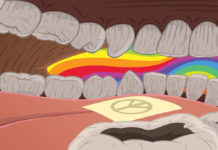psychopathological symptoms as a part of experiencing a more severe mental profile than men, with more women struggling with lifetime depression, but fewer incidents of violence. “In all studies we have carried out up to date, [the] therapeutic response in women has been significantly worse than that observed in men,” Fernández-Montalvo said.
The two substances that were mainly used in the study were alcohol and cocaine, with men consuming alcohol for a longer period of time, and no significant differences in usage of other drugs. Despite the increased usage of alcohol, it is not clear how this affects the progress of treatment and may make treatment progress for those who used alcohol or cocaine longer.
There have been multiple reports that indicated differences between male and female addiction severity and recovery efficiency, but the results have been inconsistent. Some studies have concluded that an increased number of female patients drop out while others have shown that males leave treatment early more often.
“Women must be provided with additional targeting intervention to promote better treatment outcomes,” Fernández-Montalvo said. “It is necessary to continue to study addiction with a focus on gender. These studies will allow for a better understanding of the factors that increase resistance to treatment and an adaptation of existing intervention programs to meet the specific needs of men and women with substance abuse problems.”















